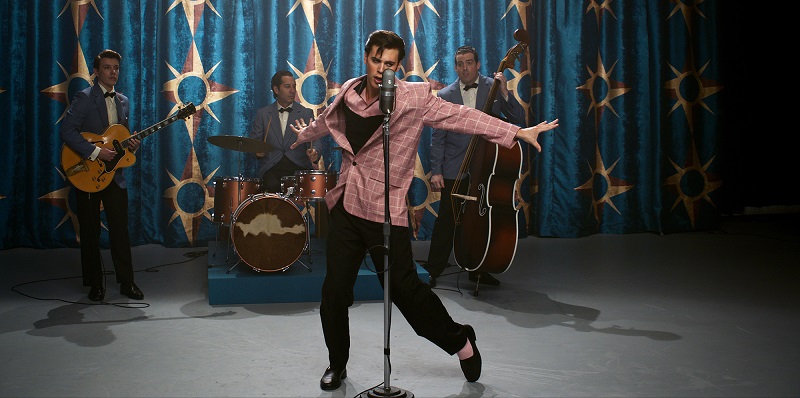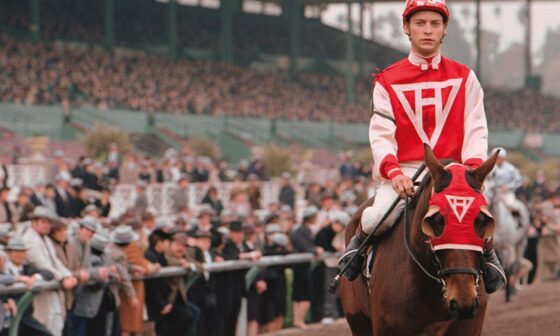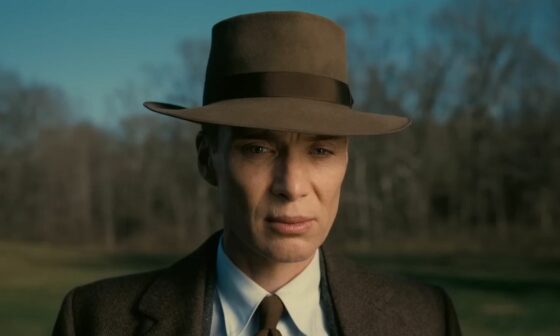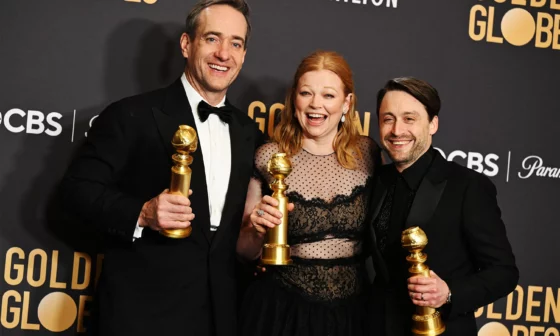Elvis Presley was one of the most famous musicians of the 20th Century. He’s also the latest musician to get a biopic about his life and career with Baz Luhrmann taking on the task.
Elvis focuses on the relationship between Elvis Presley (Austin Butler) and his manager Colonel Tom Parker (Tom Hanks). It goes from early days when Elvis tours with Hank Snow (David Wenham) around the Deep South, to national success, to his residence at the International Hotel in Las Vegas.
There has been a trend in recent years of biopics based on famous bands and singers. Bohemian Rhapsody was a profitable crowd-pleaser, Rocketman was an acclaimed musical, and Respect acted as a showcase of Jennifer Hudson’s talents. However, biopics about musicians and bands tend to be formulaic. Walk Hard: The Dewey Cox Story parodied the formula back in 2007.
The story in these films usually shows the early struggles and successes, the artist getting addicted to drinking or drugs, having a troubled relationship with their partner, collaborator, or management, and having some sort of big comeback. Elvis does have these ingredients because they are standard for this subgenre. What makes Elvis stand out was the presentation.
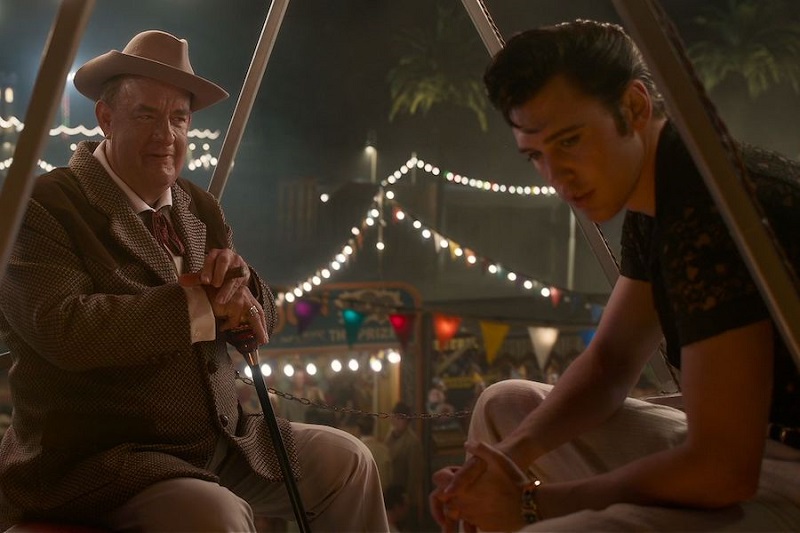
Baz Luhrmann is a divisive director. People love him or hate him; his films have a distinctive look and style and he’s always an unconventional storyteller. Elvis was told from Colonel Tom’s perspective as he lay on his death bed. It automatically made the film being told by an unreliable narrator.
It was a bit like I, Tonya because it was also a biopic told through an unreliable narrator and told in an unconventional way. It felt like what I, Tonya when telling its story.
Elvis started off in a frenzied manner and it continued that energy throughout its run time. There was an overload of information in the first few minutes because it showed Elvis having to sober up before a performance, Colonel Tom having a heart attack, and news reports about Colonel Tom’s abuses of Elvis.
The editing was used to transmit a lot of information through the film. There were loads of montages and split screens to show the passage of time and how things have changed. It added to Elvis’ sense of style.
Elvis covered a long period of time. It went from the 1950s when Elvis was known for hip-swinging greaser days, his attempts to act in Hollywood and his comeback special in 1968, and his years in Las Vegas. The risk of this type of biopic is it could be trying to cover too much in too little time.
Luhrmann said his original cut was four hours and it felt like it could have been a miniseries. To solve this issue the film told its story through the prism of the Elvis and Colonel Tom relationship. Elvis’ relationship with his family was affected by Colonel Tom. The manager was able to manipulate Elvis’ father (Richard Roxburgh), whilst the women were more cautious.
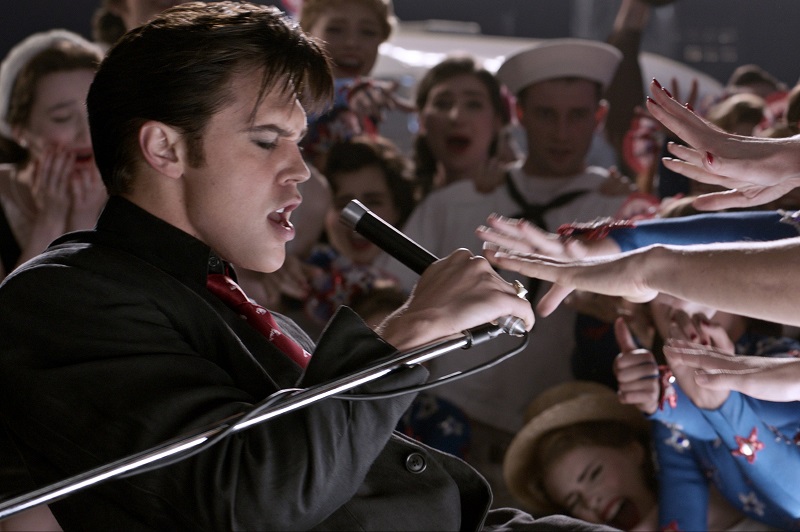
The major changes in Elvis’ style of music and within his career were also explored through the relationship between Elvis and Colonel Tom. Colonel Tom was able to give Elvis national exposure and he was shown to be an excellent businessman.
He was able to make a lot of money from merchandise and satellite broadcasts of Elvis concerts. But Colonel Tom stifled Elvis’ creativity and made decisions that ruined Elvis’ career because he tried to turn him into a family entertainer. Elvis had to take back control of his musical direction so he could save his career.
A great moment that showed the changing relationship between Elvis and Colonel Tom was when Elvis was starting to perform in Vegas. Colonel Tom forced Elvis into a gilded cage when he signed a five-year exclusivity contract at The International. Elvis was singing “Suspicious Minds” which opened with the lyrics ‘I’m caught in a trap,’ just as Colonel Tom signs Elvis’ life away. It was on the nose but still effective.

Elvis did have an excellent cast. Austin Butler shows he’s a star in the making. He capsulated the young heartthrob who could get women to throw their underwear on stage, to the fading star who had plied himself with drugs and only lived to perform. Creatively he was a genius, but he was naïve when it came to trusting people.
Tom Hanks played against type by being in a more villainous role. Hanks has always played nice, charming roles. In Elvis Colonel Tom had the ability to convince people into his way of thinking and was able to worm his way into the Presley family. He was someone who only cared about himself and his bottom line. He was easy to hate.
Elvis was a film that could easily have been a run-in-the-mill musician biopic. Baz Luhrmann was able to make Elvis anything but ordinary and made a highly stylish and entertaining film about the King of Rock and Roll.
#Peace.Love.Elvis

